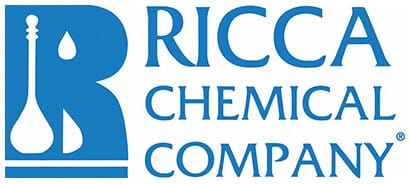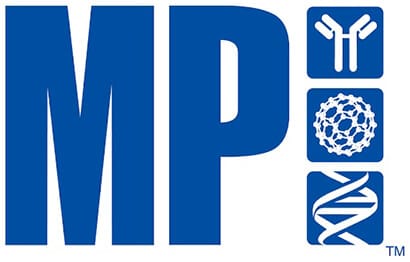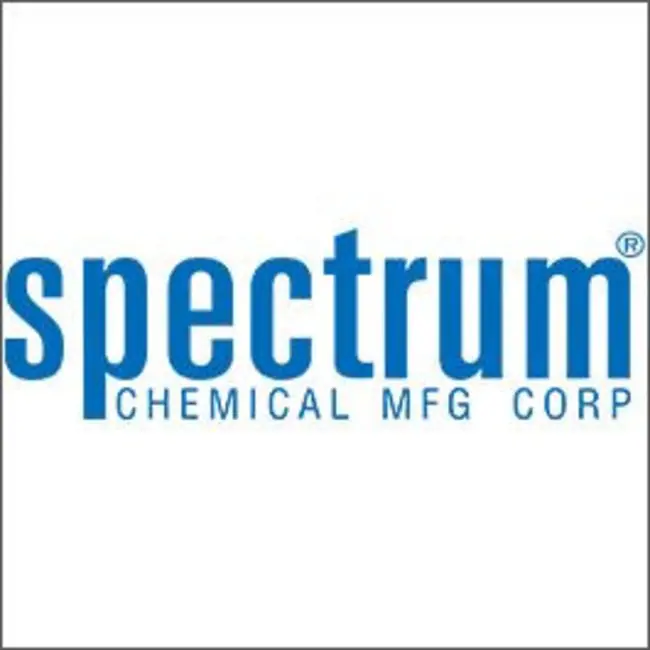Shop
Showing 68951–69000 of 174103 results
-
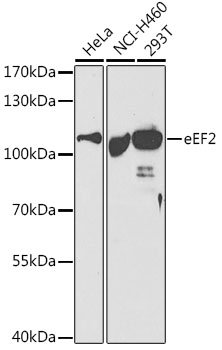
eEF2 Rabbit pAb
$239.89 Add to cart View Product DetailsPolyclonal Antibodies
-

eEF2 Rabbit pAb
$86.94 Add to cart View Product DetailsPolyclonal Antibodies
-
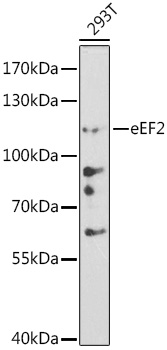
eEF2 Rabbit pAb
$86.94 Add to cart View Product DetailsPolyclonal Antibodies
-
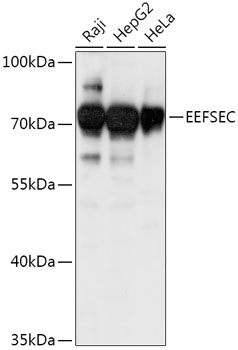
EEFSEC Rabbit pAb
$86.94 Add to cart View Product DetailsPolyclonal Antibodies
-

EEFSEC Rabbit pAb
$239.89 Add to cart View Product DetailsPolyclonal Antibodies
-

Efavirenz
$98.43 Add to cart View Product DetailsEfavirenz
-
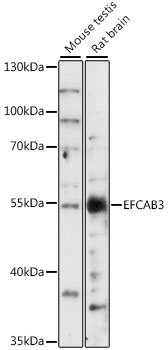
EFCAB3 Rabbit pAb
$239.89 Add to cart View Product DetailsPolyclonal Antibodies
-

EFCAB3 Rabbit pAb
$86.94 Add to cart View Product DetailsPolyclonal Antibodies
-
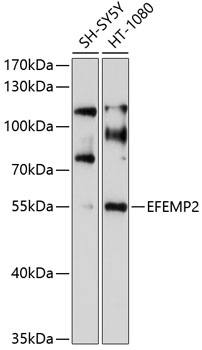
EFEMP2 Rabbit pAb
$86.94 Add to cart View Product DetailsPolyclonal Antibodies
-

EFEMP2 Rabbit pAb
$239.89 Add to cart View Product DetailsPolyclonal Antibodies
-
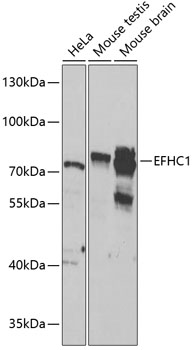
EFHC1 Rabbit pAb
$239.89 Add to cart View Product DetailsPolyclonal Antibodies
-

EFHC1 Rabbit pAb
$86.94 Add to cart View Product DetailsPolyclonal Antibodies
-
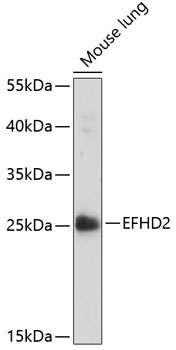
EFHD2 Rabbit pAb
$86.94 Add to cart View Product DetailsPolyclonal Antibodies
-

EFHD2 Rabbit pAb
$239.89 Add to cart View Product DetailsPolyclonal Antibodies
-

EFNA1 Rabbit pAb
$86.94 Add to cart View Product DetailsPolyclonal Antibodies
-

EFNA1 Rabbit pAb
$239.89 Add to cart View Product DetailsPolyclonal Antibodies
-
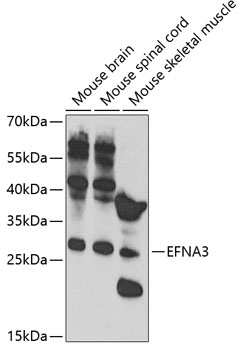
EFNA3 Rabbit pAb
$239.89 Add to cart View Product DetailsPolyclonal Antibodies
-

EFNA3 Rabbit pAb
$86.94 Add to cart View Product DetailsPolyclonal Antibodies
-
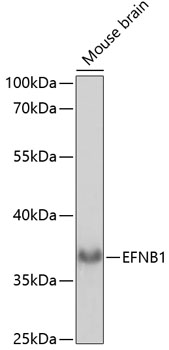
EFNB1 Rabbit pAb
$239.89 Add to cart View Product DetailsPolyclonal Antibodies
-

EFNB1 Rabbit pAb
$86.94 Add to cart View Product DetailsPolyclonal Antibodies
-
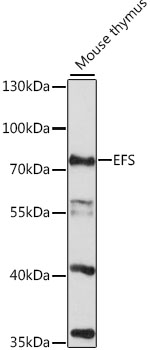
EFS Rabbit pAb
$239.89 Add to cart View Product DetailsPolyclonal Antibodies
-

EFS Rabbit pAb
$86.94 Add to cart View Product DetailsPolyclonal Antibodies
-

EFTUD2 Rabbit pAb
$86.94 Add to cart View Product DetailsPolyclonal Antibodies
-

EFTUD2 Rabbit pAb
$239.89 Add to cart View Product DetailsPolyclonal Antibodies
-
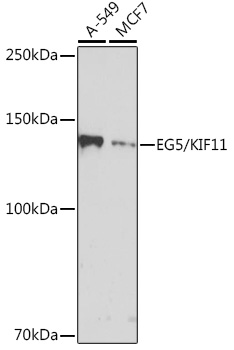
EG5/KIF11 Rabbit mAb
$103.04 Add to cart View Product DetailsMonoclonal Antibodies
-

EG5/KIF11 Rabbit mAb
$264.04 Add to cart View Product DetailsMonoclonal Antibodies
-

EG5/KIF11 Rabbit pAb
$239.89 Add to cart View Product DetailsPolyclonal Antibodies
-

EG5/KIF11 Rabbit pAb
$86.94 Add to cart View Product DetailsPolyclonal Antibodies
-
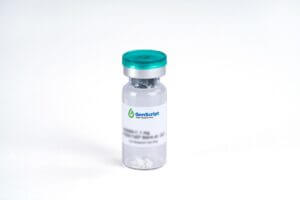
EGF Fc Chimera, Human
$125.06 Add to cart View Product DetailsEpidermal Growth Factor (EGF) is a potent growth factor that stimulates the proliferation of various epidermal and epithelial cells. Additionally, EGF has been shown to inhibit gastric secretion, and to be involved in wound healing. EGF signals through the EGF receptor (EGFR) also known as erbB1, is a class I tyrosine kinase receptor. This receptor also binds with TGF-α and VGF (vaccinia virus growth factor). EGF-receptor binding results in cellular proliferation, differentiation, and survival. EGF is a low-molecular-weight polypeptide first purified from the mouse submandibular gland, but since then found in many human tissues including submandibular gland, parotid gland. Salivary EGF, which seems also regulated by dietary inorganic iodine, also plays an important physiological role in the maintenance of oro-esophageal and gastric tissue integrity. The biological effects of salivary EGF include healing of oral and gastroesophageal ulcers, inhibition of gastric acid secretion, stimulation of DNA synthesis as well as mucosal protection from intraluminal injurious factors such as gastric acid, bile acids, pepsin, and trypsin and to physical, chemical and bacterial agents.
-
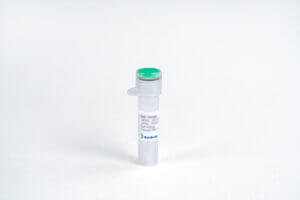
EGF Fc Chimera, Human
$43.13 Add to cart View Product DetailsEpidermal Growth Factor (EGF) is a potent growth factor that stimulates the proliferation of various epidermal and epithelial cells. Additionally, EGF has been shown to inhibit gastric secretion, and to be involved in wound healing. EGF signals through the EGF receptor (EGFR) also known as erbB1, is a class I tyrosine kinase receptor. This receptor also binds with TGF-α and VGF (vaccinia virus growth factor). EGF-receptor binding results in cellular proliferation, differentiation, and survival. EGF is a low-molecular-weight polypeptide first purified from the mouse submandibular gland, but since then found in many human tissues including submandibular gland, parotid gland. Salivary EGF, which seems also regulated by dietary inorganic iodine, also plays an important physiological role in the maintenance of oro-esophageal and gastric tissue integrity. The biological effects of salivary EGF include healing of oral and gastroesophageal ulcers, inhibition of gastric acid secretion, stimulation of DNA synthesis as well as mucosal protection from intraluminal injurious factors such as gastric acid, bile acids, pepsin, and trypsin and to physical, chemical and bacterial agents.
-

EGF Fc Chimera, Human
$63.83 Add to cart View Product DetailsEpidermal Growth Factor (EGF) is a potent growth factor that stimulates the proliferation of various epidermal and epithelial cells. Additionally, EGF has been shown to inhibit gastric secretion, and to be involved in wound healing. EGF signals through the EGF receptor (EGFR) also known as erbB1, is a class I tyrosine kinase receptor. This receptor also binds with TGF-α and VGF (vaccinia virus growth factor). EGF-receptor binding results in cellular proliferation, differentiation, and survival. EGF is a low-molecular-weight polypeptide first purified from the mouse submandibular gland, but since then found in many human tissues including submandibular gland, parotid gland. Salivary EGF, which seems also regulated by dietary inorganic iodine, also plays an important physiological role in the maintenance of oro-esophageal and gastric tissue integrity. The biological effects of salivary EGF include healing of oral and gastroesophageal ulcers, inhibition of gastric acid secretion, stimulation of DNA synthesis as well as mucosal protection from intraluminal injurious factors such as gastric acid, bile acids, pepsin, and trypsin and to physical, chemical and bacterial agents.
-

EGF R, His, Human
$1,470.56 Add to cart View Product DetailsEGF Receptor, also known as ERBB, ERBB1 and HER1, is a type I transmembrane protein belonging to the tyrosine protein kinase family. It belongs to a family of tyrosine kinase receptors including Human EGF Receptors (HER) 2, 3, and 4 which all play important roles in cell growth and differentiation. Their primary ligands are EGF, Heparin-Binding EGF and Transforming Growth Factor α. Upon ligand binding, EGFR undergoes asymmetric dimerization, composed of an “activator” and a “receiver”. EGFR and its family members are disregulated in numerous cancers. In particular, EGFR is overexpressed in many epithelial solid tumors. Evidence suggests EGFR is an excellent target for pharmacologic intervention in Non Small Cell Lung Cancer (NSCLC) due to its high level of expression and prominent role in tumor growth and metastasis.
-

EGF R, His, Human
$86.25 Add to cart View Product DetailsEGF Receptor, also known as ERBB, ERBB1 and HER1, is a type I transmembrane protein belonging to the tyrosine protein kinase family. It belongs to a family of tyrosine kinase receptors including Human EGF Receptors (HER) 2, 3, and 4 which all play important roles in cell growth and differentiation. Their primary ligands are EGF, Heparin-Binding EGF and Transforming Growth Factor α. Upon ligand binding, EGFR undergoes asymmetric dimerization, composed of an “activator” and a “receiver”. EGFR and its family members are disregulated in numerous cancers. In particular, EGFR is overexpressed in many epithelial solid tumors. Evidence suggests EGFR is an excellent target for pharmacologic intervention in Non Small Cell Lung Cancer (NSCLC) due to its high level of expression and prominent role in tumor growth and metastasis.
-

EGF R, His, Human
$194.06 Add to cart View Product DetailsEGF Receptor, also known as ERBB, ERBB1 and HER1, is a type I transmembrane protein belonging to the tyrosine protein kinase family. It belongs to a family of tyrosine kinase receptors including Human EGF Receptors (HER) 2, 3, and 4 which all play important roles in cell growth and differentiation. Their primary ligands are EGF, Heparin-Binding EGF and Transforming Growth Factor α. Upon ligand binding, EGFR undergoes asymmetric dimerization, composed of an “activator” and a “receiver”. EGFR and its family members are disregulated in numerous cancers. In particular, EGFR is overexpressed in many epithelial solid tumors. Evidence suggests EGFR is an excellent target for pharmacologic intervention in Non Small Cell Lung Cancer (NSCLC) due to its high level of expression and prominent role in tumor growth and metastasis.
-

EGF Rabbit mAb
$103.04 Add to cart View Product DetailsMonoclonal Antibodies
-

EGF Rabbit mAb
$264.04 Add to cart View Product DetailsMonoclonal Antibodies
-

EGF Rabbit pAb
$86.94 Add to cart View Product DetailsPolyclonal Antibodies
-

EGF Rabbit pAb
$86.94 Add to cart View Product DetailsPolyclonal Antibodies
-

EGF Rabbit pAb
$239.89 Add to cart View Product DetailsPolyclonal Antibodies
-

EGF Rabbit pAb
$239.89 Add to cart View Product DetailsPolyclonal Antibodies
-
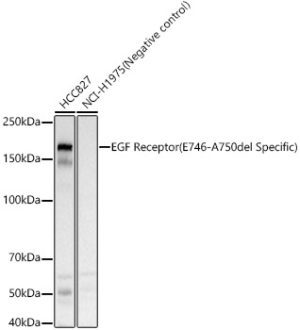
EGF Receptor (E746-A750del Specific) Rabbit pAb
$239.89 Add to cart View Product DetailsPolyclonal Antibodies
-

EGF Receptor (E746-A750del Specific) Rabbit pAb
$86.94 Add to cart View Product DetailsPolyclonal Antibodies
-
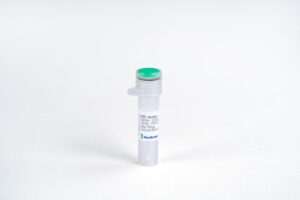
EGF, His, Human
$125.06 Add to cart View Product DetailsEpidermal Growth Factor (EGF) is a potent growth factor that stimulates the proliferation of various epidermal and epithelial cells. Additionally, EGF has been shown to inhibit gastric secretion, and to be involved in wound healing. EGF signals through the EGF receptor (EGFR) also known as erbB1, is a class I tyrosine kinase receptor. This receptor also binds with TGF-α and VGF (vaccinia virus growth factor). EGF-receptor binding results in cellular proliferation, differentiation, and survival. EGF is a low-molecular-weight polypeptide first purified from the mouse submandibular gland, but since then found in many human tissues including submandibular gland, parotid gland. Salivary EGF, which seems also regulated by dietary inorganic iodine, also plays an important physiological role in the maintenance of oro-esophageal and gastric tissue integrity. The biological effects of salivary EGF include healing of oral and gastroesophageal ulcers, inhibition of gastric acid secretion, stimulation of DNA synthesis as well as mucosal protection from intraluminal injurious factors such as gastric acid, bile acids, pepsin, and trypsin and to physical, chemical and bacterial agents.
-

EGF, His, Human
$29.33 Add to cart View Product DetailsEpidermal Growth Factor (EGF) is a potent growth factor that stimulates the proliferation of various epidermal and epithelial cells. Additionally, EGF has been shown to inhibit gastric secretion, and to be involved in wound healing. EGF signals through the EGF receptor (EGFR) also known as erbB1, is a class I tyrosine kinase receptor. This receptor also binds with TGF-α and VGF (vaccinia virus growth factor). EGF-receptor binding results in cellular proliferation, differentiation, and survival. EGF is a low-molecular-weight polypeptide first purified from the mouse submandibular gland, but since then found in many human tissues including submandibular gland, parotid gland. Salivary EGF, which seems also regulated by dietary inorganic iodine, also plays an important physiological role in the maintenance of oro-esophageal and gastric tissue integrity. The biological effects of salivary EGF include healing of oral and gastroesophageal ulcers, inhibition of gastric acid secretion, stimulation of DNA synthesis as well as mucosal protection from intraluminal injurious factors such as gastric acid, bile acids, pepsin, and trypsin and to physical, chemical and bacterial agents.
-

EGF, His, Human
$72.45 Add to cart View Product DetailsEpidermal Growth Factor (EGF) is a potent growth factor that stimulates the proliferation of various epidermal and epithelial cells. Additionally, EGF has been shown to inhibit gastric secretion, and to be involved in wound healing. EGF signals through the EGF receptor (EGFR) also known as erbB1, is a class I tyrosine kinase receptor. This receptor also binds with TGF-α and VGF (vaccinia virus growth factor). EGF-receptor binding results in cellular proliferation, differentiation, and survival. EGF is a low-molecular-weight polypeptide first purified from the mouse submandibular gland, but since then found in many human tissues including submandibular gland, parotid gland. Salivary EGF, which seems also regulated by dietary inorganic iodine, also plays an important physiological role in the maintenance of oro-esophageal and gastric tissue integrity. The biological effects of salivary EGF include healing of oral and gastroesophageal ulcers, inhibition of gastric acid secretion, stimulation of DNA synthesis as well as mucosal protection from intraluminal injurious factors such as gastric acid, bile acids, pepsin, and trypsin and to physical, chemical and bacterial agents.
-
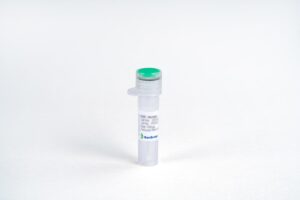
EGF, Human
$168.19 Add to cart View Product DetailsEpidermal Growth Factor (EGF) is a potent growth factor that stimulates the proliferation of various epidermal and epithelial cells. Additionally, EGF has been shown to inhibit gastric secretion, and to be involved in wound healing. EGF signals through the EGF receptor (EGFR) also known as erbB1, is a class I tyrosine kinase receptor. This receptor also binds with TGF-α and VGF (vaccinia virus growth factor). EGF-receptor binding results in cellular proliferation, differentiation, and survival. EGF is a low-molecular-weight polypeptide first purified from the mouse submandibular gland, but since then found in many human tissues including submandibular gland, parotid gland. Salivary EGF, which seems also regulated by dietary inorganic iodine, also plays an important physiological role in the maintenance of oro-esophageal and gastric tissue integrity. The biological effects of salivary EGF include healing of oral and gastroesophageal ulcers, inhibition of gastric acid secretion, stimulation of DNA synthesis as well as mucosal protection from intraluminal injurious factors such as gastric acid, bile acids, pepsin, and trypsin and to physical, chemical and bacterial agents.
-

EGF, Human
$34.50 Add to cart View Product DetailsEpidermal Growth Factor (EGF) is a potent growth factor that stimulates the proliferation of various epidermal and epithelial cells. Additionally, EGF has been shown to inhibit gastric secretion, and to be involved in wound healing. EGF signals through the EGF receptor (EGFR) also known as erbB1, is a class I tyrosine kinase receptor. This receptor also binds with TGF-α and VGF (vaccinia virus growth factor). EGF-receptor binding results in cellular proliferation, differentiation, and survival. EGF is a low-molecular-weight polypeptide first purified from the mouse submandibular gland, but since then found in many human tissues including submandibular gland, parotid gland. Salivary EGF, which seems also regulated by dietary inorganic iodine, also plays an important physiological role in the maintenance of oro-esophageal and gastric tissue integrity. The biological effects of salivary EGF include healing of oral and gastroesophageal ulcers, inhibition of gastric acid secretion, stimulation of DNA synthesis as well as mucosal protection from intraluminal injurious factors such as gastric acid, bile acids, pepsin, and trypsin and to physical, chemical and bacterial agents.
-

EGF, Human
$90.56 Add to cart View Product DetailsEpidermal Growth Factor (EGF) is a potent growth factor that stimulates the proliferation of various epidermal and epithelial cells. Additionally, EGF has been shown to inhibit gastric secretion, and to be involved in wound healing. EGF signals through the EGF receptor (EGFR) also known as erbB1, is a class I tyrosine kinase receptor. This receptor also binds with TGF-α and VGF (vaccinia virus growth factor). EGF-receptor binding results in cellular proliferation, differentiation, and survival. EGF is a low-molecular-weight polypeptide first purified from the mouse submandibular gland, but since then found in many human tissues including submandibular gland, parotid gland. Salivary EGF, which seems also regulated by dietary inorganic iodine, also plays an important physiological role in the maintenance of oro-esophageal and gastric tissue integrity. The biological effects of salivary EGF include healing of oral and gastroesophageal ulcers, inhibition of gastric acid secretion, stimulation of DNA synthesis as well as mucosal protection from intraluminal injurious factors such as gastric acid, bile acids, pepsin, and trypsin and to physical, chemical and bacterial agents.
-

EGF, Human
$86.25 Add to cart View Product DetailsEpidermal Growth Factor (EGF) is a potent growth factor that stimulates the proliferation of various epidermal and epithelial cells. Additionally, EGF has been shown to inhibit gastric secretion, and to be involved in wound healing. EGF signals through the EGF receptor (EGFR) also known as erbB1, is a class I tyrosine kinase receptor. This receptor also binds with TGF-α and VGF (vaccinia virus growth factor). EGF-receptor binding results in cellular proliferation, differentiation, and survival. EGF is a low-molecular-weight polypeptide first purified from the mouse submandibular gland, but since then found in many human tissues including submandibular gland, parotid gland. Salivary EGF, which seems also regulated by dietary inorganic iodine, also plays an important physiological role in the maintenance of oro-esophageal and gastric tissue integrity. The biological effects of salivary EGF include healing of oral and gastroesophageal ulcers, inhibition of gastric acid secretion, stimulation of DNA synthesis as well as mucosal protection from intraluminal injurious factors such as gastric acid, bile acids, pepsin, and trypsin and to physical, chemical and bacterial agents.
-

EGF, Human
$43.13 Add to cart View Product DetailsEpidermal Growth Factor (EGF) is a potent growth factor that stimulates the proliferation of various epidermal and epithelial cells. Additionally, EGF has been shown to inhibit gastric secretion, and to be involved in wound healing. EGF signals through the EGF receptor (EGFR) also known as erbB1, is a class I tyrosine kinase receptor. This receptor also binds with TGF-α and VGF (vaccinia virus growth factor). EGF-receptor binding results in cellular proliferation, differentiation, and survival. EGF is a low-molecular-weight polypeptide first purified from the mouse submandibular gland, but since then found in many human tissues including submandibular gland, parotid gland. Salivary EGF, which seems also regulated by dietary inorganic iodine, also plays an important physiological role in the maintenance of oro-esophageal and gastric tissue integrity. The biological effects of salivary EGF include healing of oral and gastroesophageal ulcers, inhibition of gastric acid secretion, stimulation of DNA synthesis as well as mucosal protection from intraluminal injurious factors such as gastric acid, bile acids, pepsin, and trypsin and to physical, chemical and bacterial agents.


